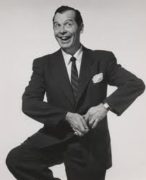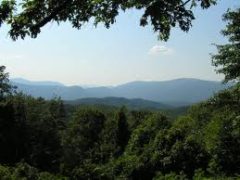From approximately the 1930s to the 1960s, the idyllic Catskill Mountains in upstate New York occupied a special and unique place in the American travel industry, being the single largest resort area in the United States.
With its multitude of hotels, the Catskills attracted a mainly Jewish clientele who were drawn to the food, lots of it on demand, and the free entertainment.
A disproportionate number of the entertainers were Jewish standup comedians like Milton Berle, Jack Benny, Sid Caesar, Jerry Stiller, Billy Crystal, Don Rickles and Henny Youngman.

Some of these performers were already famous when they reached the Catskills. Still others were in the process of honing their trade. In the case of the latter, the Catskills were a breeding ground for new and promising comedians, a boot camp for American humor.
This phenomenon is explored in an absorbing documentary, When Comedy Went To School, which will be screened by the Toronto Jewish Film Festival’s Chai Tea & A Movie series on Sunday, Oct. 6 at the City Playhouse Theatre (1000 New Westminister Drive, in Vaughan). Tea is served at 4 p.m., and the movie starts an hour later.
The film, directed by Mevlut Akkaya and Ron Frank, compares yesterday’s Catskills to today’s American Idol television show. Both were and are venues for talented young performers to gain exposure and, hopefully, success.
According to Jackie Mason, who should know, a successful comedian has to be improvisational and creative. Alan King, one of the greatest of his generation, possessed these qualities in spades.

Consider one of his simple yet hilarious jokes: “My wife takes 40 minutes to put on lipstick. There’s a reason. She has a big mouth.”
When Comedy Went To School claims that the Catskills supplanted vaudeville and burlesque, which basically expired in the 1930s.
The Catskill resorts, built primarily by Eastern European Jewish contractors, filled the void brilliantly as a haven for Jews during the summer season.
Grossinger’s, one of the first such Borscht Belt resorts, was set on 850 acres of bucolic countryside, with 1,100 mindful employees catering to the needs of 1,100 finicky guests.
The meals were fit for a king or a queen. “It was a good place to eat,” recalls a former guest. “Jews never finished eating.”
When they wern’t tucking into a matzoh ball soup or devouring a steak with all the trimmings, they were relaxing by the swimming pool or playing card games with their buddies. When the day was done, they were entertained by a bevy of comedians, who liked to puncture the pompous and whose jokes were invariably inflected with Yiddish words and phrases.
The film makes a stab at explaining why Jews have traditionally been drawn to humor, saying that the gift of laughter enabled them to bear the weight of economic hardship and the burden of antisemitism.
Humor was a survival mechanism, particularly in the shtetls of the Russian empire, but in America it was really a way of letting off steam in luxurious surroundings.
